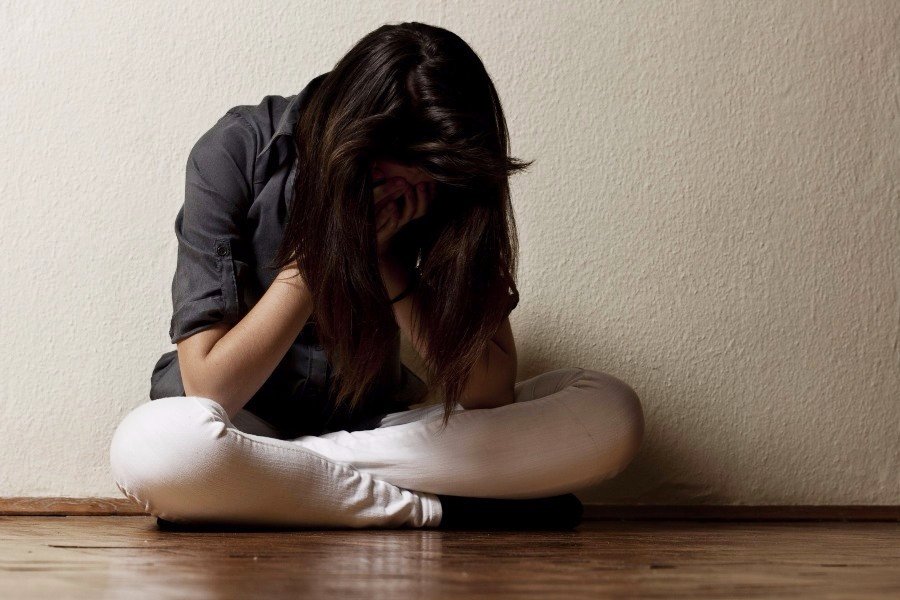
Four Types of Depression You Should Watch Out From

Whenever life doesn’t go in our own way, we sometimes can’t help but be depressed. We feel down and suddenly surrounded by a negative aura. Depression is a mental, emotional, and psychological disorder that is hard to cure. Besides that, depression just comes in many forms. The signs and symptoms are quite similar, so it is hard to distinguish one from the others.
“Whenever you read a cancer booklet or website or whatever, they always list depression among the side effects of cancer. But, in fact, depression is not a side effect of cancer. Depression is a side effect of dying.” ― John Green
Here are the four types of depression that you should watch out for better treatment.
 Major Depression
Major Depression
 Of course, this kind of depression tops our list. The symptoms include what you generally feel when you’re depressed: a low mood, lack of interest in your routine, and lack of appetite, which eventually lead to weight loss. A depressed person can also experience trouble in sleeping because the patient’s mind is filled either with guilt, worthlessness, and even thoughts of suicide.
Of course, this kind of depression tops our list. The symptoms include what you generally feel when you’re depressed: a low mood, lack of interest in your routine, and lack of appetite, which eventually lead to weight loss. A depressed person can also experience trouble in sleeping because the patient’s mind is filled either with guilt, worthlessness, and even thoughts of suicide.
This occurs when we’re experiencing something big and terrible. What’s dangerous about this is that the symptoms may persist up to two weeks or even longer. If you’re having these symptoms, it’s recommended that you seek professional help immediately.
 Psychotic Depression
Psychotic Depression
Thi is one of the most dangerous types of depression a person can experience. This type of depression takes away the victim’s ability to grasp the reality. Symptoms include hallucinations, delusions, illusions, and dreams. The patient has a hard time distinguishing reality from fiction. Furthermore, it numbs one’s deductive reasoning.
If not treated, this type of depression can escalate to insanity. It’s dangerous not only for the patient but also for the people around as one is capable of doing anything. Most individuals who suffer from this type of depression are those who have been victims of addiction.
 Peripartum/Postpartum Depression
Peripartum/Postpartum Depression
 This type of depression normally occurs to women throughout their pregnancy. To some, it extends after the delivery of the child. Symptoms of Peripartum/Postpartum include fluctuating moods (highs and lows), disruptive thoughts, and self-consciousness. The mother may experience self-loathing due to gaining weight (being out of shape) or the stretch marks. If this happens, it is your duty as a husband or a family member to reassure her that you’ll love her no matter what.
This type of depression normally occurs to women throughout their pregnancy. To some, it extends after the delivery of the child. Symptoms of Peripartum/Postpartum include fluctuating moods (highs and lows), disruptive thoughts, and self-consciousness. The mother may experience self-loathing due to gaining weight (being out of shape) or the stretch marks. If this happens, it is your duty as a husband or a family member to reassure her that you’ll love her no matter what.
 Seasonal Affective Disorder
Seasonal Affective Disorder
This type of depression is a little different from the other three discussed above because it is triggered by a change in seasons. Usually, it occurs at the beginning of winter and fall due to the occurrence of “darker” and “duller” days.
“If you know someone who’s depressed, please resolve never to ask them why. Depression isn’t a straightforward response to a bad situation; depression just is, like the weather.” ― Stephen Fry
More in Expert Advice
-
Topp Casinoroulette Hints ♦ Konungariket Sverige ♥️
Oavsett om du letar efter VIP-förmåner, virtuella valutametoder, eller spel byggda av unika skapare, globala kasinoplattformar presenterar spännande alternativ som hemsajter...
November 19, 2025 -
Guia completo sobre as ofertas de bônus do Monro Casino
Se você está em busca de um cassino online que realmente ofereça uma variedade de bônus e promoções, o Monro Casino...
September 8, 2025 -
Métodos de Pagamento Seguros e Confiáveis no Sato Oficioso do Monro
Se você está se aventurando no mundo das apostas online, especialmente no monro casino, saber escolher métodos de pagamento seguros e...
September 8, 2025 -
`
Why Plant-Based Foods Are an ‘Elixir’ For Burning Calories
Adopting a plant-based diet is becoming more and more popular nowadays. And for good reason. Plant-based foods have been shown to...
July 28, 2023 -
`
Why American Physicians Are Vulnerable to ‘Virtual’ Monopolies
As technology continues to shape the healthcare industry, American physicians are becoming increasingly vulnerable to ‘virtual’ monopolies. These monopolies come in...
June 20, 2023 -
`
Your Diet and Its Impact on Your Reproductive Health
When it comes to reproductive health, what you eat plays a major role in determining your success. Eating nutritious foods can...
June 18, 2023 -
`
Health Insurance Plans & Their Benefits: A Deep Dive
Health insurance plans are an important part of maintaining good health. By having a policy in place, you can cover the...
May 30, 2023 -
`
Vitamin Business is Booming, But Could Supplements Do More Harm Than Good?
Social media has made lots of things fashionable, and many people are making a killing from conducting business on various online...
April 2, 2023 -
`
Beyonce Swears By Veganism! But Here’s What’s Concerning About the Lifestyle
With stardom comes great responsibility – sure, celebs get to enjoy world-class accommodation, royal treatment, luxurious trips and getaways, but the status comes with...
April 1, 2023






